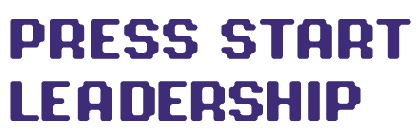How to Interview for a Leadership Role
Practical Tips for Landing Your Dream Job
For any interview, practice and research are key. Practice the things you might say in an interview, including answering the questions that might come up. Research the company and role you’re applying for, and really know your stuff. Once you’ve got your prep work down, you can focus on the actual interview.
When you’re in the interview, focus on your personal experience and results to start with. Talk about challenging moments in your career and how you’ve learned and grown from them. Talk about successful moments you’ve had in your career and brag a little bit. (It’s okay, you earned it.) While talking about you is important (they want to know who they’re hiring, afterall), don’t let that take up any more than 30-40% of the interview. Why? There’s no “i” in team, especially if you’re being hired to lead one.
Once you’ve covered your own experience, that’s when the leadership questions generally start. Bring the conversation around to how you and your team overcame challenges and found success together. Apply those wins and setbacks to the team, not just to yourself. Focus on framing the discussion around how you led the team and contributed to their triumphs, not as an individual, but as a leader. The team portion should take up the remaining 60-70% of the interview.
During the team portion, you’ll want to make sure you define your values as a leader. If you haven’t been in a leadership position yet, that’s okay, you should still define your values and speak about how you would apply them. You should also discuss your leadership style (and beat them to the punch before they ask, if possible). I highly recommend you adopt the servant leadership style. It’s what most companies are looking for these days, and it’s the best option out there. You might prefer another leadership style, that’s okay too, just know how you use it and why.
If the company you’re interviewing with is looking for a true leader, they also want to know about how you coach, team building, and how you tackle 1-on-1s. If you’re new, again, be prepared to answer – even if it’s how you would handle these things in your future role.
Most importantly, the leaders interviewing you have probably experienced most of the things you have and can relate to your struggles, so just be honest. Don’t say “I’ve never had a bad employee” or some other such bullshit, because they know that’s not true. Bad employees exist, so don’t pretend they don’t. As a leader, you have to deal with them. Your new company wants to know that you can handle the good, the bad, and the ugly, and do it all with integrity.
Want more leadership tips? Check out my YouTube channel and my podcast! Or download my FREE e-book: 5 Heroic Leadership Skills today!


